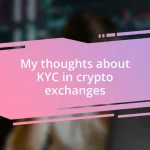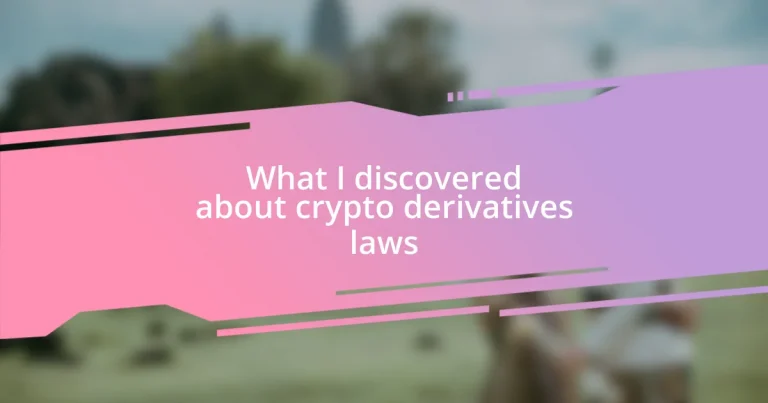Key takeaways:
- Understanding different types of crypto derivatives (futures, options, and swaps) is essential for developing effective trading strategies.
- Legal frameworks for crypto derivatives vary significantly across jurisdictions, affecting regulatory compliance and trading opportunities.
- Compliance challenges, including adapting to changing regulations and understanding implications across jurisdictions, require ongoing education and vigilance for traders.
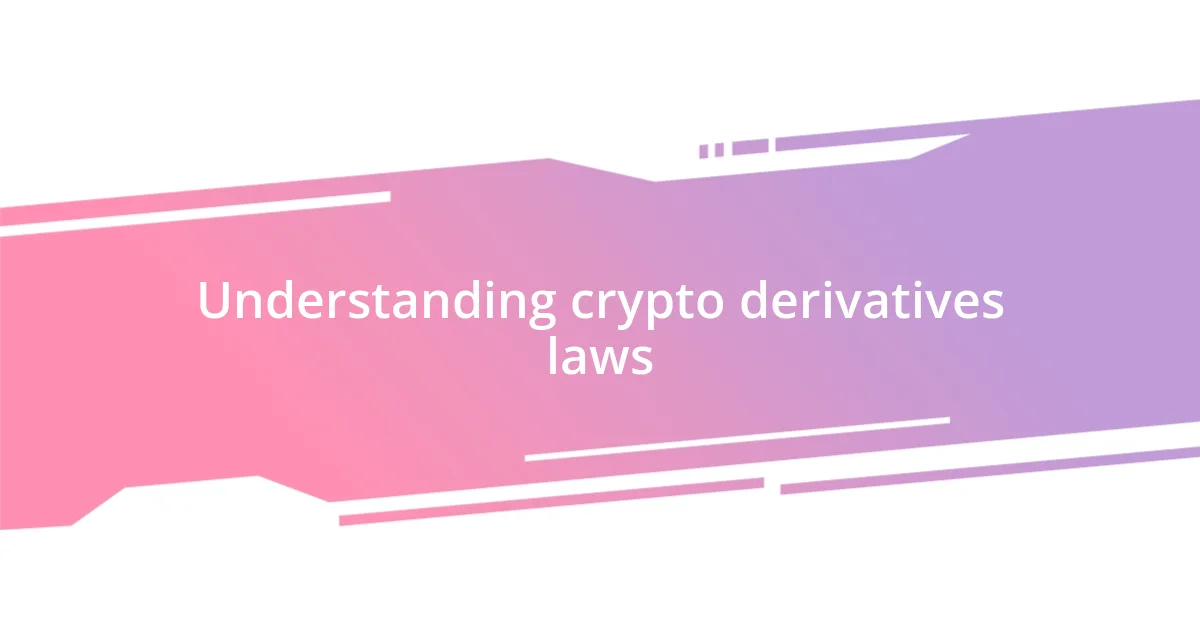
Understanding crypto derivatives laws
Understanding crypto derivatives laws can feel like navigating a complex maze. For example, when I first delved into this area, I was surprised by the sheer variety of regulations that exist across different jurisdictions. It made me wonder: how can something meant to democratize trading be so tightly governed?
The intricacies of these laws often revolve around the nature of the derivatives themselves—futures, options, and swaps. I remember feeling overwhelmed as I tried to grasp how each type served different purposes for traders. Have you ever thought about how understanding these distinctions could empower your own trading strategies?
I’ve also seen firsthand how the legal landscape can shift unexpectedly. Being aware of these changes has been crucial for me. It’s not just about compliance; it’s about being prepared and seizing opportunities as they arise. When laws evolve, they can open doors or close them—knowing how to navigate these changes is key for anyone interested in crypto derivatives.
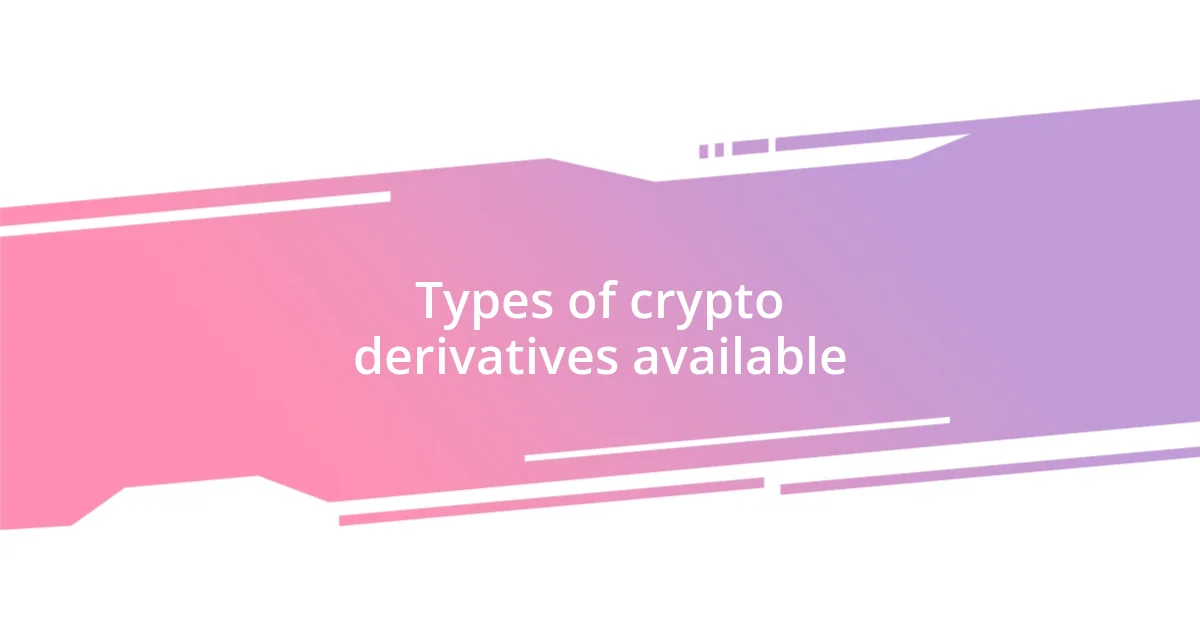
Types of crypto derivatives available
The primary types of crypto derivatives are futures, options, and swaps. Each serves its unique purpose in the trading landscape. For instance, when I first traded futures, I was captivated by the ability to bet on prices without owning the underlying asset directly. It’s like having a ticket to a concert without having to buy the whole venue!
Options, on the other hand, added another layer of complexity. They provide the right—but not the obligation—to buy or sell at a predetermined price. I recall my first experience with options felt akin to a chess game, where each move has significant implications. Understanding the nuances of how each type can be leveraged was a game-changer for my investment strategy.
Swaps, while less talked about, are equally intriguing. They allow for exchanging cash flows or benefits between parties, typically focused on interest rates or currencies. I remember feeling like a bridge builder when I engaged in a crypto swap, linking two different financial streams that could enhance returns or minimize risks.
| Type | Description |
|---|---|
| Futures | Contracts to buy/sell an asset at a predetermined future date and price. |
| Options | Gives the buyer the right to buy/sell at a specific price before expiration, without the obligation. |
| Swaps | Contracts to exchange cash flows or benefits between parties, often focused on interest rates or currencies. |
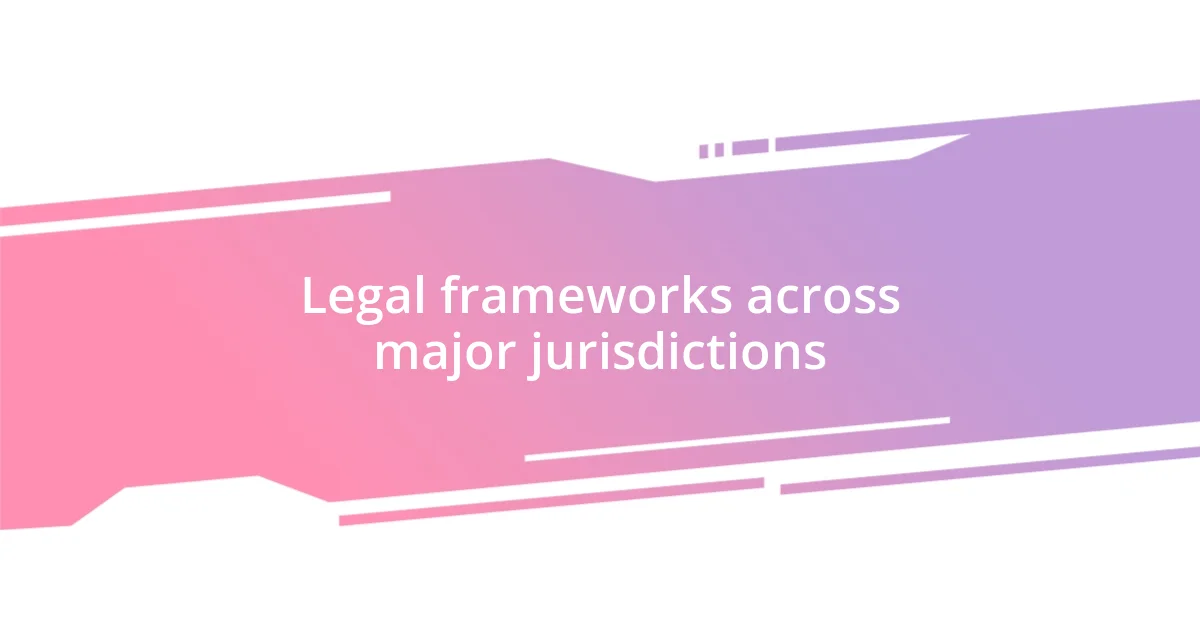
Legal frameworks across major jurisdictions
Navigating the legal frameworks for crypto derivatives can be quite the adventure. When I first explored these laws in different jurisdictions, I found it fascinating—and a bit daunting—how each area approached regulation differently. For example, I remember comparing the stringent rules in Europe to the more lenient regulations in places like Hong Kong; it felt like watching two different movies with the same overarching theme.
Here are some notable differences across major jurisdictions:
– United States: The Commodity Futures Trading Commission (CFTC) governs derivatives, with a focus on preventing fraud and manipulation.
– European Union: The Markets in Crypto-Assets (MiCA) framework is being established to provide regulatory clarity and consumer protection.
– United Kingdom: The Financial Conduct Authority (FCA) oversees derivative trades but has been cautious, especially regarding leverage limits.
– Japan: The Financial Services Agency (FSA) has implemented comprehensive guidelines for crypto derivatives trading, promoting investor protections while encouraging innovation.
I often reflect on how these varying regulations create a patchwork of opportunities and risks. For instance, while trading in a regime with softer regulations might seem appealing, my experiences have taught me the importance of understanding the legal environment—what seems like a challenge can quickly magnify into a significant problem if not navigated properly.
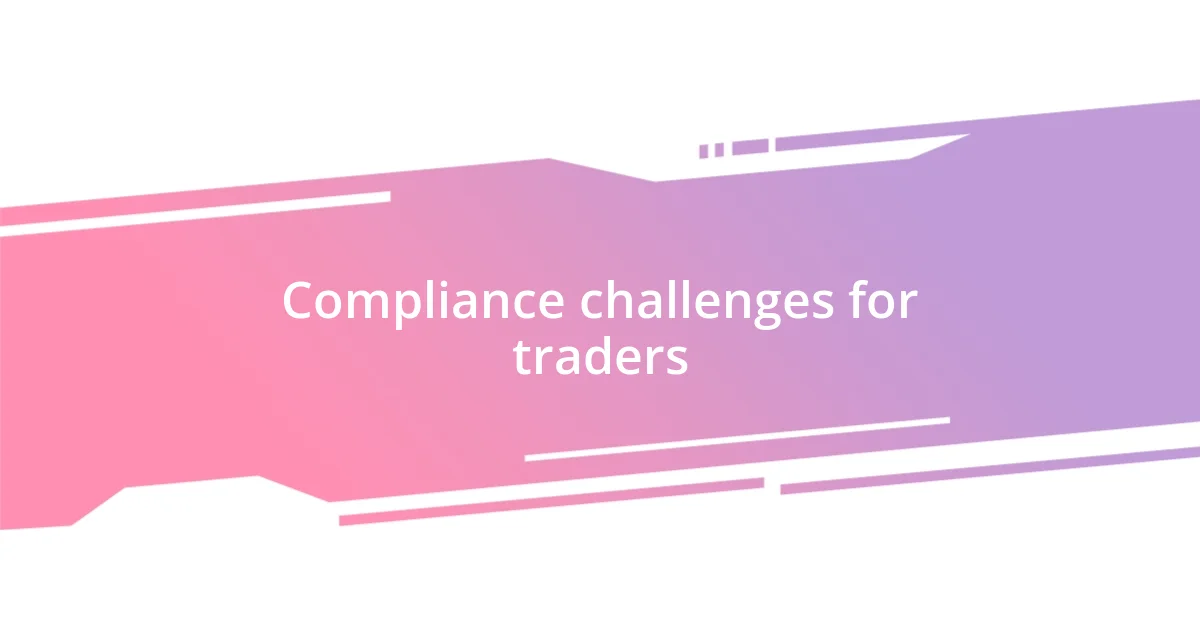
Compliance challenges for traders
Compliance challenges in crypto derivatives trading can feel like navigating a maze. I vividly remember my puzzling first conversation with compliance officers who seemed to speak a different language. Between anti-money laundering (AML) regulations and know your customer (KYC) requirements, I realized that keeping pace with rapidly shifting legal standards is a daunting task for any trader. It made me wonder—how can one effectively trade while constantly having to look over their shoulder for potential compliance pitfalls?
Another challenge I encountered was understanding the implications of my trading actions across various jurisdictions. I once faced a situation where a strategy I employed in one country was completely restricted in another. That taught me the hard way that compliance isn’t just about knowing the laws; it’s also about anticipating how different regulations can impact your trading strategies. I often found myself asking, “Am I missing something important here?”
Staying compliant also requires an ongoing commitment to education, which can be overwhelming. I’ve spent countless hours attending webinars and workshops, and yet I still sometimes feel a bit lost. The pace at which crypto regulations evolve leaves little room for complacency, and it makes me question whether I have the right tools and insights to navigate this constantly shifting landscape. Have you had similar experiences? I’d love to hear how you’ve tackled these compliance issues!







